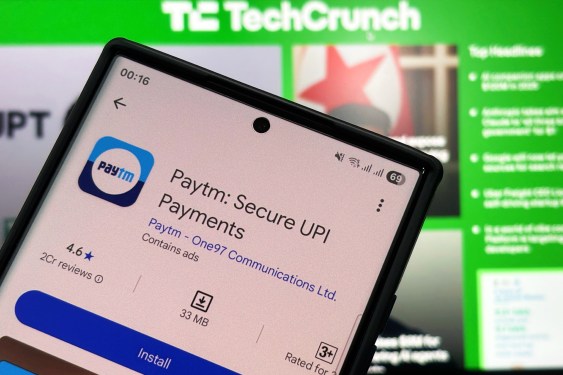Indian fintech giant Paytm has received long-awaited approval from the Reserve Bank of India to operate as a payment services provider for online merchants. This regulatory breakthrough comes just days after one of its Chinese investors, Ant Group, sold its entire stake in the company.
On Tuesday, the RBI granted in-principle approval to Paytm’s Payment Services unit to function as an online payment aggregator. The approval marks a significant milestone for the Noida-based fintech, which was initially denied the license in November 2022 due to noncompliance with India’s rules on foreign investments from countries sharing a land border.
Without the license, Paytm was barred from onboarding new online merchants. While the company previously claimed the restriction had no material impact on its business, founder and CEO Vijay Shekhar Sharma later expressed intentions to reapply for the license.
The approval also follows a challenging period for Paytm, which faced regulatory scrutiny last year when the RBI banned its Payments Bank from accepting fresh deposits and processing credit transactions. In response, Paytm partnered with major banks like Axis, HDFC, State Bank of India, and Yes Bank to continue offering payment services to its users.
With the new license, Paytm can now serve as a payment aggregator for online merchants, enabling them to accept various payment methods, including cards, net banking, and the government-backed Unified Payments Interface (UPI). The approval also lifts the RBI’s earlier restrictions on onboarding new online merchants.
The timing of the approval coincides with Ant Group’s exit from Paytm. The Chinese firm recently sold its remaining 5.8% stake in Paytm’s parent company, One97 Communications, for $454 million. This follows an earlier sale in 2023, when Ant Financial divested a 10.3% stake worth $628 million to Vijay Shekhar Sharma in a no-cash deal.
Paytm must now complete a system audit, including a cybersecurity review, and submit its findings to the RBI within six months. Failure to do so could result in the approval lapsing. The license is currently limited to online payment services and does not extend beyond this scope.
The development strengthens Paytm’s position in India’s fintech ecosystem, allowing it to control more of its value chain—from offline sound boxes to online payment gateways—and reducing reliance on banking partners.
Paytm is currently the third-largest UPI payments platform in India, behind PhonePe and Google Pay. In June, it processed 1.27 billion UPI transactions worth ₹1.34 trillion ($15 billion), accounting for 6.9% of total UPI transaction volume. While it trails the dominant players, Paytm differentiates itself with a broader suite of services, including offline merchant solutions and a growing credit and lending business.
Financially, Paytm has shown signs of recovery. The company reported net income of ₹1.23 billion ($14 million) for the first quarter of FY26, a turnaround from losses in the same period last year. Revenue grew 28% year-over-year to $224 million, with contribution margins improving to 60%.
The company’s stock has also rebounded, rising 13.25% year-to-date in 2025, signaling renewed investor confidence after a turbulent regulatory period. Shares closed at ₹1,118.50 ($13) just before the RBI’s approval was announced.

